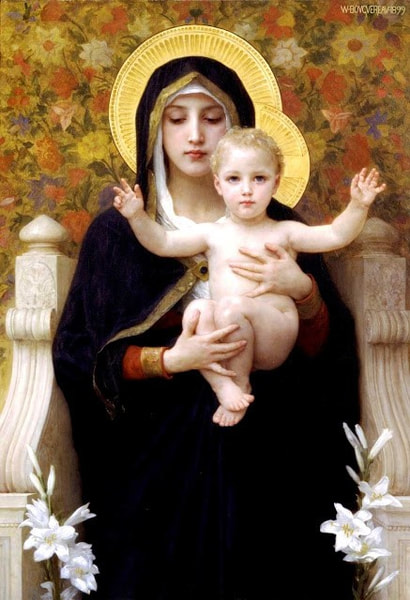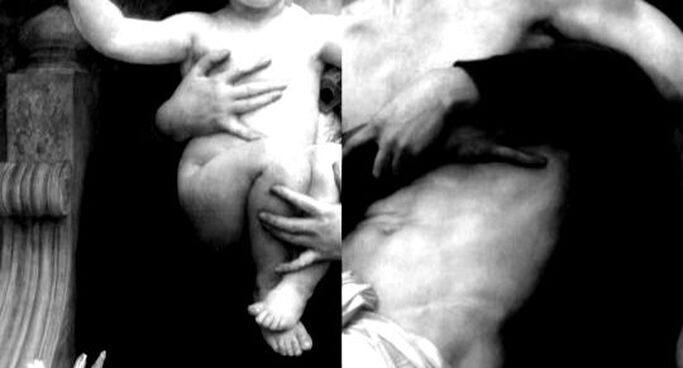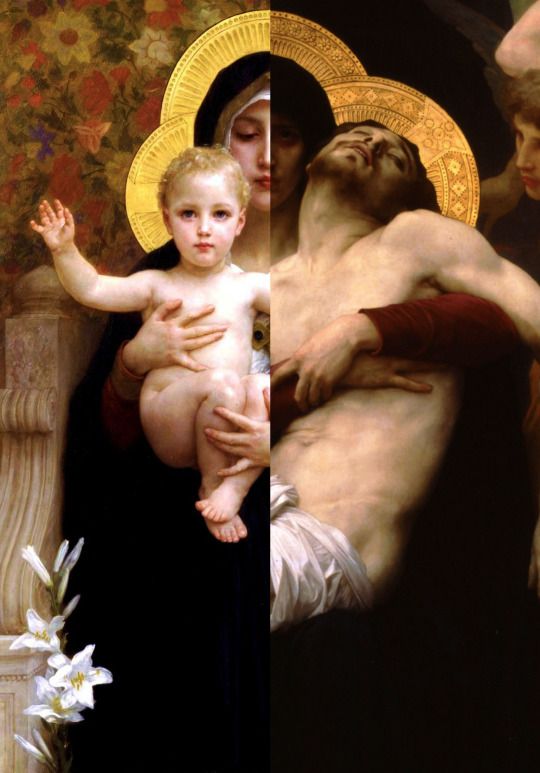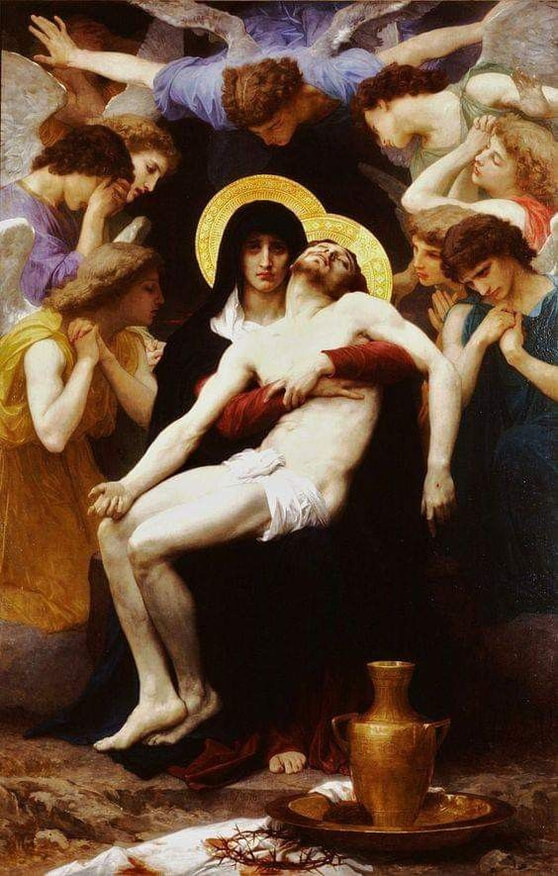 The Madonna of the Lilies painted in 1899 by William Adolphe Bouguereau (1825-1905). The Madonna of the Lilies painted in 1899 by William Adolphe Bouguereau (1825-1905). "Just as the savage puzzles in bewilderment over - some strange piece of jetsam is it? some long buried relic of the sands? or some mysterious object fallen from the sky (enigmatically serpentine, glinting now dully and now with a piercing shaft of light), turning it this way and that, fumbling with it in an attempt to find a use for it, to apply it to some practicable lowly function oblivious of any higher one, so do we, holding art in our hands, confidently deem ourselves its masters and boldly set out to direct it, to renew, reform and parade it, to sell it for money or flatter the strong with it, or turn it into entertainment, into popular songs and night club acts, or into a stopgap or a stick, depending on our whim, for transitory political or limited social needs. But art is not sullied by our efforts and thereby loses nothing of its pedigree, always and in all functions bestowing upon us a portion of its mysterious inner light. But can we encompass the whole of that light? Who would dare say that he had defined art, that he had enumerated all its aspects? Perhaps someone has already understood and named them for us in centuries past, but we were unable to linger for long: we listened a moment, then turned a deaf ear and tossed it aside, thirsting as always to change what we had, however perfect, for no matter what, so long as it was new. And when they tell us the old truths again, we do not even remember that we already possessed them. One artist fancies himself the creator of an independent spiritual world and shoulders the act of creating that world, populating it and taking total responsibility for it, but his knees buckle under the strain, for mortal genius is not capable of sustaining such a load - just as man in general, having proclaimed himself to be the centre of creation, has proved incapable of creating a balanced spiritual system. And when failure overtakes him, he shrugs off the blame on the primordial disharmony of the world, the complexity of the modern disorientated soul or the du11-wittedness of the public. Another acknowledges a superior power over him and cheerfully works as an insignificant apprentice under God's heaven, although he recognises an even heavier responsibility for everything that he writes or paints and for the souls coming under his influence. At the same time it was not he who created this world or controls it, and so he never doubts its foundations; all that is given to the artist is to have a keener sense than others of the world's harmony and of the beauty and ugliness of man's contribution to it, and to convey this vividly to others. Even in failure and even on the lowest rungs of existence- in destitution, in prison, in infirmities- he will never be forsaken by this sense of stable harmony. The whole irrationality of art, however, with its dazzling convolutions, its unpredictable discoveries and its stunning power to move people - all these are too mysterious to be accounted for by the artist's beliefs and intentions or the work of his unworthy hands. Archaeologists have yet to discover a stage of human existence when we were without art. Back in the primeval dawn of humanity we received it from hands that were too indistinct for us to see. And there was no time to ask: what is this gift for, what shall we dowith it? And all those false prophets were wrong and will always be wrong when they forecast that art will disintegrate, that it will outlive its forms and die. It is we who will die, art will remain. And are we capable of grasping all its aspects and all its functions before we die Not everything can be named. There are some things that go beyond words. Art can kindle even the shrammed and benighted soul to exalted spiritual experience. Art is the means by which we are sometimes vouchsafed- dimly and briefly- such revelations as are not accessible to rational thought. Like that little mirror in the fairy tales. You look into it and you glimpse- not yourself: you glimpse for an instant the Inaccessible, whither you can never gallop or fly. And only a deep yearning remains." -October 1970 Alexander Solzhenitsyn was awarded the Nobel Prize for literature. This award was not welcomed by the Soviet government, however, and Solzhenitsyn declined to attend the prize-giving ceremony in December 1970 for fear of not being allowed to return to the Soviet Union. R.I.P. #alexandersolzhenitsy
0 Comments
|
AuthorMoriah Mylod Archives
July 2022
|


